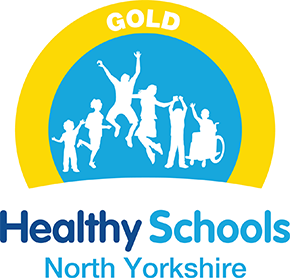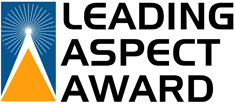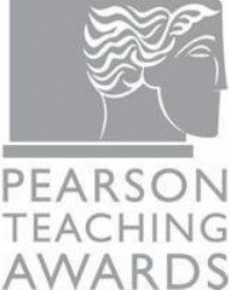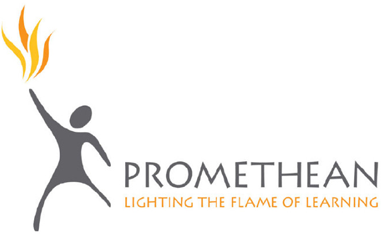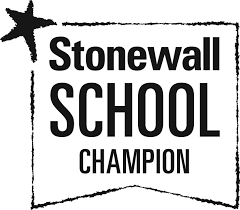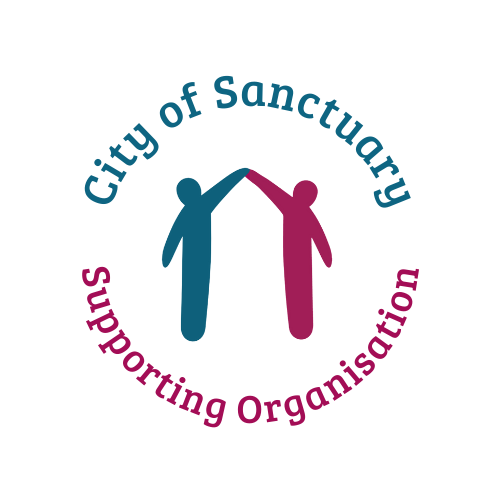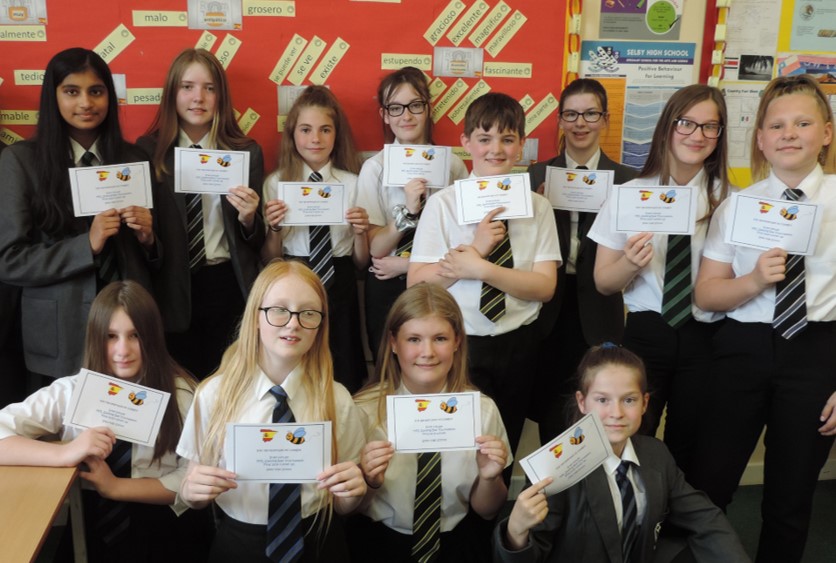 Spanish:
Spanish:
Subject Information Overview
Below is a visual overview of the content available on this page. Click the appropriate title to view the relevant section
Curriculum
Area Staff Curriculum
InformationCurriculum
OverviewExam information for GCSE
qualifications in this Subject AreaKnowledge
Organisers
Curriculum Area Staff
|
Kathryn Lee (CAL MFL) |
Alison Haigh |
Should you require more information about this subject area please contact:
Name: Mrs Kathryn Lee
Position: Curriculum Area Leader
Email: kl2@selbyhigh.co.uk
Curriculum Information
In Spanish we believe that all students should have the opportunity to develop linguistic and cultural knowledge that will enable them to explore and thrive in the world beyond their everyday experience. In their social lives, their travels and for some, their future working lives, we want our students to be able to communicate with confidence with other Spanish speakers, and gain the language-learning strategies that will encourage them to study other languages in due course.
Throughout the curriculum, students will develop their skills in reading, writing, speaking and listening to Spanish. The curriculum will provide a sound knowledge of key grammatical structures and vocabulary that will enable students to manipulate language, for practical and creative purposes.
Currently in year 7 pupils learn how to talk about themselves, others, and the world around them, with a strong focus on grammar, phonics and vocabulary that has been chosen specifically for its frequency rather than simply for its topical relevance. Through this approach pupils are able to manipulate language with more confidence and adapt it more readily than if a topic-driven approach were to be taken.
Y8s and 9s currently still follow a more topic-based approach, however grammar is very much at the core of the curriculum, with a regular phonics focus. Topics in Y8 include free time, home, and region, allowing pupils to develop their ability to express and explain opinions relating to their hobbies and where they live, in the past, present and future time frames.
In Y9 pupils build on their knowledge from Y7 and 8 to talk about themselves, their relationships with others, their interests and healthy lifestyles, in more depth and with greater complexity. Pupils also learn how to talk about holidays and travel in the past, present and future time frames, developing real-life skills in terms of language they may need to book accommodation and eat out in restaurants. Pupils find out about foods from different Hispanic countries as well as festivals that are celebrated across the Hispanic world.
As they move towards their GCSE studies, students will gain increasing confidence in expressing their ideas and thoughts in another language, as they find ways of communicating what they want to say, with a significant focus on discussion and questioning. Topics such as shopping and holidays throughout the course will provide opportunities for students to communicate for practical purposes. As students increase in fluency and spontaneity, they will also continually improve the accuracy of their pronunciation and intonation. Alongside their spoken language, students will develop the skills to write at varying lengths, for different purposes and audiences, using the grammatical structures they have learnt at each stage, and using an increasingly complex vocabulary.
The curriculum also fosters the pupils’ curiosity and deepening understanding of the diverse world around them, including that of Hispanic culture.
CURRICULUM OVERVIEW
Below is a summary overview of the topics and their content that will be studied in each term by each year group. For more information about each topic, get your child to visit learning journeys and resources on the school online learning platform - Ready Steady Learn.
| Year Group | Cycle 1 (Sept to Dec) | Cycle 2 (Jan to March) | Cycle 3 (April to July) |
| 7 |
Content - Topics:
GRAMMAR: |
Content - Topics:
GRAMMAR: |
Content - Topics:
GRAMMAR: |
| Assessment details |
Year 7 Assessment: - There will be 3 assessments spread throughout the year. They will focus on the content studied up to that point in the year. |
||
| 8 |
Content - Topics:
|
Content - Topics:
|
Content - Topics:
GRAMMAR:
|
| Assessment details |
Year 8 Assessment: - There will be 3 assessments spread throughout the year. They will focus on the content studied up to that point in the year. |
||
| 9 |
Content - Topics:
GRAMMAR: |
Content - Topics:
GRAMMAR:
|
Content - Topics:
|
| Assessment details |
Year 8 Assessment: - There will be 3 assessments spread throughout the year. They will focus on the content studied up to that point in the year |
||
|
10 |
Content - Topics:
GRAMMAR: |
Content - Topics:
GRAMMAR: |
Content - Topics:
|
| Assessment details |
Year 10 Assessment: - There will be 5 assessments spread throughout the year. They will focus on the content studied up to that point in the year, with the 5th assessment being a full GCSE mock exam, including Listening, Reading, and Writing skills. |
||
| 11 |
Content - Topics:
|
Content - Topics:
|
Content - Topics:
|
| Assessment details | There will be 2 full GCSE mock exams in October / November and February, which will cover all 4 skills of Listening, Speaking, Reading and Writing, with the final GCSEs taking place from April onwards (the final speaking exam will be towards the end of April). | ||
KNOWLEDGE ORGANISERS
A Knowledge Rich Curriculum at Selby High School
Research around memory suggests that if knowledge is studied once and not revisited or revised, it is not stored in the long-term memory. This means that after one lesson, or revising for one test, the knowledge will not be retained unless it is studied again. It won’t be recalled unless it is revisited frequently, which will embed it in the long term memory. In the long term this makes recall far easier. As part of home learning, students should be revising what they have been taught recently but also content they were taught previously. Therefore as part of our strategy to embed learning over time we have started to develop knowledge organisers across all year groups and curriculum areas. These will provide key content and knowledge allowing students to pre-learn and re-learn, a vital part of processing all the information required to be successful in the new style GCSE’s.
Instructions for using your knowledge organisers
KS3 = Years 7, 8 & 9
KS4 = Years 10 & 11
Below are the knowledge organisers for each topic in this subject. These knowledge organisers will become embedded in the Learning Journeys for each topic as they are created on Ready Steady Learn.
Exam information for GSCE qualifications in this subject area
Click each link below to view the full specification:
- 25% Listening
- 25% Speaking
- 25% Reading
- 25% Writing
- Theme 1 – People and Lifestyle
- Theme 2 – Popular Culture
- Theme 3 – Communication and the world around us




